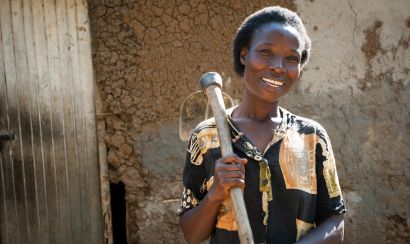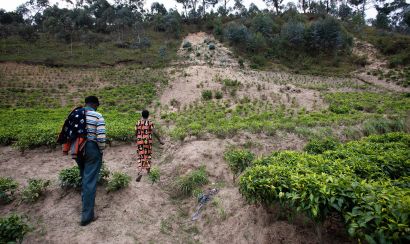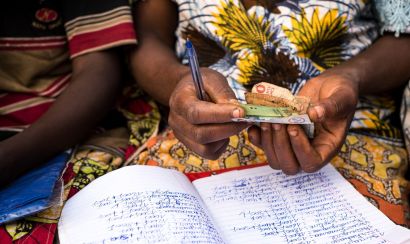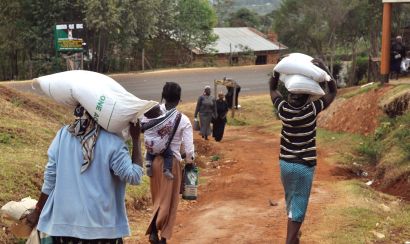How Agriculture Financing Solutions Help Families Achieve Food Security
Smallholder agriculture is critical for the food security and incomes of rural communities. However, because of barriers to production and profitability, smallholder farming has yet to achieve its essential purpose: providing enough food for those who grow it.
One particular challenge farmers face is accessing the finance they need to buy essential farming products like seed and fertilizer. If they can’t get the capital they need in time for the planting season (the majority of smallholder farms in Sub-Saharan Africa are wholly rain-fed), then they either plant late which impacts the strength of their harvest, or they miss out on planting completely. Accessing financial resources and tools to increase farm production and diversify income streams is the catalyst farmers need to ensure their household income and food security.
For Angelo Hafashimana, a 34-year-old farmer in Burundi, farming had always been an unrewarding job. His yields were small, and he struggled to provide basic needs for his family of five. “I mostly planted maize and beans, but the biggest obstacle was raising enough money to purchase fertilizer and quality seeds at the start of each planting season. Whenever I could afford some fertilizer, I would buy around 10kg. But I probably didn’t apply it right because it didn’t improve my yields,” Angelo says.
At One Acre Fund, we support farmers across Sub-Saharan Africa through asset-based financing - this means that rather than requiring farmers to pay upfront with cash, we provide them the assets (such as quality seed, fertilizer and planting tools) they need for success on credit. They then repay the costs for these assets over time. At the same time, we provide training on the best farming practices to help maximize their yields— ensuring farmers get the biggest harvests possible with the money they’ve invested.
“When I heard there was an organization that could give me access to farming inputs on credit, I was thrilled,” Angelo says, He enrolled immediately after the first One Acre Fund meeting he attended. With the first loan he took in 2017, he purchased maize seeds and fertilizer, on credit and received farming training on how best to plant and care for his crops.
“When I enrolled, my field officer helped me determine the correct amount of seeds and fertilizer to order. The quantities seemed so little compared to what I was used to buying each season, and I didn't think I would harvest anything. As it turns out, I spent less than I usually did and harvested much more,” Angelo says.
Keeping costs down
Additionally, we leverage economies of scale by sourcing inputs for numerous farm families in every country we operate, resulting in cost savings for farmers. For example, collecting farmer orders in advance allows us to negotiate volume discounts with suppliers, resulting in lower prices per unit for farmers compared to what they would pay in retail shops. Buying inputs in bulk also reduces the number of trips a farmer needs to take to purchase inputs, leading to lower transportation costs and less time spent sourcing inputs.
Like any business person, farmers want to invest less and earn more, which our model allows us to help them. In addition to giving farmers access to quality farming inputs, our model provides them with training that supports them to keep their costs low. For example, we provide training on composting as a complement to fertilizer application. This training shares best practices on how to recycle organic matter, such as crop residue, animal manure, and food waste, into nutrient-rich manure. Through composting, farmers can reduce their reliance on fertilizers, therefore reducing the associated costs.
“What I love most about One Acre Fund is that they taught me how to build a compost pile. I recently built mine, and soon I won't be buying as much fertilizer,” Angelo says.
We know from first-hand experience just how powerful investments at key moments in the farming season are to helping smallholder farmers like Angelo achieve greater yields and profitability. Supporting agriculture financing initiatives that can unlock the potential of this vital sector can have a significant impact on increasing farm families’ household income and food security.



